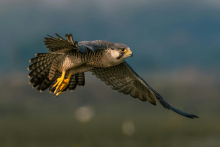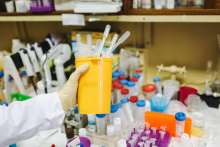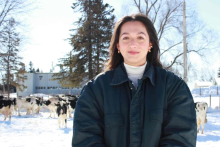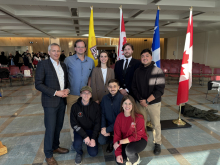After DDT use nearly wiped out peregrine falcons in the 20th century, numbers are collapsing again in many countries, the Guardian reports.
Though scientists have yet to determine a definite cause, many—including McGill Professor Emeritus David Bird, who formerly led the University's Avian Science and Conservation Centre—think highly pathogenic bird flu may be largely to blame.















